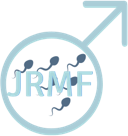I receive many patient referrals from GPs and understand how important it is for you to find the right person to help your patient.
Hopefully, the information elsewhere on my website has provided an overview of my experience, but if you would like further information you can access my full CV and find below a list of lectures that I have recently given on the field of urology, with a specialism in male fertility.
January 2020 saw me examining in Kuala Lumpa. I was on the speciality board in Urology, of the Joint Surgical Colleges Fellowship Examinations and really enjoyed the task.
Patient Referrals
Should you decide that I am well-placed to help your patient there are several ways of referring them to me:
Recent Papers
Please find below a list of recent medical publications and papers I've authored or been a part of:
Consensus and Diversity in the Management of Varicocele for Male Infertility: Results of a Global Practice Survey and Comparison with Guidelines and Recommendations
Varicocele, defined as an abnormal enlargement and tortuosity of veins in the pampiniform plexus, is the most common correctable cause of male infertility. Varicocele affects nearly 15% of the general male population and is diagnosed in 19% to 41% of primary male infertility.
The relationship between genitourinary microorganisms and oxidative stress, sperm DNA fragmentation and semen parameters in infertile men
An imbalance in the genitourinary microbiome is emerging as a contributing factor to male infertility. The purpose of this study was to determine whether there is an association between genitourinary microorganisms and seminal oxidative stress, sperm DNA fragmentation and semen parameters.
Comprehensive Analysis of Global Research on Human Varicocele: A Scientometric Approach
This study provides a comprehensive analysis of research trends on the etiology, mechanisms, potential risk factors, diagnosis, prognosis, surgical and non-surgical treatment of varicocele, and clinical outcomes before and after varicocele re- pair. Varicocele is defined as an abnormal enlargement and tortuosity of veins in the pampiniform plexus. One in 7 adolescents over 15 years of age is reported to have a varicocele.
Sperm DNA Fragmentation: A Critical Assessment of Clinical Practice Guidelines
Sperm DNA fragmentation is implicated in male infertility and adverse reproductive outcomes. With the publication of many studies regarding the etiologies and contributors to SDF, guidelines are necessary to aid clinicians in the application of SDF for male fertility evaluation.
Male infertility
It is estimated that infertility affects 8–12% of couples globally, with a male factor being a primary or contributing cause in approximately 50% of couples. Causes of male subfertility vary highly, but can be related to congenital, acquired, or idiopathic factors that impair spermatogenesis. Moreover, numerous studies have found that in- creased SDF adversely impacts conception rates
Sperm DNA Fragmentation: A New Guideline for Clinicians
About 15% of infertile patients have a normal semen analysis. However, assessment of sperm concentration, motility and morphology may not fully reflect impaired sperm DNA integrity which is detrimental for normal fertilisation, embryo development and success of ART. Moreover, numerous studies have found that in- creased SDF adversely impacts conception rates
Male Infertility
In this chapter from the publication "Recent Advances in Endocrinology and Diabetes 1", my co-authors and I report on the main contributory factors to male infertility, and discuss the most appropriate ways in which to manage those suffering.
READ THE ARTICLE HEREThe semen microbiome and its impact on sperm function and male fertility: A systematic review and meta-analysis
Male factor is attributable in up to 50% of cases of infertility. In vitro studies demonstrate that bacteria can negatively impact sperm function. The use of next-generation sequencing techniques has provided a better understanding of the human microbiome.
READ THE ARTICLE HEREBurdens and awareness of adverse self-reported lifestyle factors in men with sub-fertility: A cross-sectional study in 1149 men
There are no current pharmacological therapies to improve sperm quality in men with sub-fertility. Reducing the exposure to lifestyle risk factor (LSF) is currently the only intervention for improving sperm quality in men with sub-fertility.
READ THE ARTICLE HEREShould the current guidelines for the treatment of varicoceles in infertile men be re-evaluated?
Published in March 2019, this review comprehensively evaluates the current indications for varicocele treatment, and it is proposed that these should be redefined in contemporary guidelines to reflect current advances in male fertility research.
READ THE ARTICLE HEREMale Oxidative Stress Infertility (MOSI): Proposed Terminology and Clinical Practice Guidelines for Management of Idiopathic Male Infertility
Despite advances in the field of male reproductive health, idiopathic male infertility, in which a man has altered semen characteristics without an identifiable cause and there is no female factor infertility, remains a challenging condition to diagnose and manage.
READ THE ARTICLE HEREA Comparison between two assays for measuring seminal oxidative stress and their relationship with sperm DNA fragmentation
Oxidative stress (OS) is a significant cause of DNA fragmentation and is associated with poor embryo development and recurrent miscarriage. The aim of this study was to compare two different methods for assessing seminal OS and their ability to predict sperm DNA fragmentation and abnormal semen parameters.
READ THE ARTICLE HEREThe role of sperm aneuploidy as a predictor of the success of intracytoplasmic sperm injection?
It has long been recognized that chromosomal abnormalities are more frequent in sperm from subfertile men than in the general population with a consistent finding in the published literature of a predominance of sex chromosomal anomalies.
READ THE ARTICLE HERENovel use of COMET parameters of sperm DNA damage may increase its utility to diagnose male infertility and predict live births following both IVF and ICSI
Male infertility has become the most common cause of a couple’s difficulties in conceiving a child and is reported to be the most common cause of fertility cycles being carried out, yet, most men presenting with infertility are not thoroughly investigated before they embark on infertility treatment.
READ THE ARTICLE HEREA Global Survey of Reproductive Specialists to Determine the Clinical Utility of Oxidative Stress Testing and Antioxidant Use in Male Infertility
Globally, infertility impacts 15% of couples trying to conceive. The incidence of male infertility has been increasing over the past several decades, ranging from 20% to 70% worldwide. The male partner is found to be solely responsible in 20%–30% of cases, and contributes to couple infertility in approximately 50% of cases
READ THE ARTICLE HEREMicrodissection testicular sperm extraction for men undergoing cancer treatment
Where cryopreservation of a good quality semen sample is not possible or was not offered prior to initiation of treatment, microdissection testicular sperm extraction (mTESE) offers a potential route to biological fatherhood. This review explores current evidence supporting the use of mTESE in patients treated for cancer, as well as some of the barriers and questions that still remain before this technique can form part of routine practice.
READ THE ARTICLE HERESperm Vitality and Necrozoospermia: Diagnosis, Management, and Results of a Global Survey of Clinical Practice
perm vitality testing is a basic semen examination that has been described in the World Health Organization (WHO) Laboratory Manual for the Examination and Processing of Human Semen from its primary edition, 40 years ago.
Mixed Sertoli cell only histology and NOA
Likelihood of sperm retrieval is increased four-fold when Sertoli-cell only histology is observed in combination with another histological pattern during microdissection testicular extraction (mTESE) for non-obstructive azoospermia.
Lectures, talks and interviews
European Academy of Andrology - accreditation site visit for Hammersmith
Hammersmith, London. February 2020
Fertility 2020
Edinburgh. January 2020
A Microbiome in the Prostate?
RSM, London. October 2019.
Improved DNA Quality of Testicular Sperm
ESHRE, Vienna. June 2019.
The importance of testing varicoceles
Association of Biomedical Andrologists Annual Meeting, Cardiff. June 2019.
Importance of DNA Fragmentation
The Fertility Society. June 2016.
'Don't Ignore the Male'
Association of Biomedical Andrologists. April 2016.
Male Fertility Masterclass
Spire Symposium. September 2015.
Male Fertility
ESHRE (European Society of Human Reproduction and Embryology). June 2015.
Male Fertility Update
Lister Hospital. June 2015.
Nutrichemicals and Male Fertility
Fertility 2015. March 2015.
Male Fertility Awareness
BBC Wales (TV). December 2019
New Tests for Male Fertility
The Fertility Show, London. November 2019.
DNA Fragmentation
UCLH, London. October 2019.
Relevance of Sperm DNA Fragmentation in Male Fertility and IVF/ICSI outcomes
BAUS, Glasgow. June 2019.
Andrology Study Day
British Association of Urologists - Section of Andrology. September 2016.
Proxeed Plus
25th National Turkish Urology Congress. October 2016.
Male Infertility Cases
RSM, London. October 2015.
Strategies for the Management of Male Infertility
BIT Urology Conference, Beijing. August 2015.
Guidelines for the Investigation of Male Fertility
British Association of Urological Surgeons. June 2015.
Non-Obstructive Azoospermia
Barts Endocrine Symposium. April 2015.


